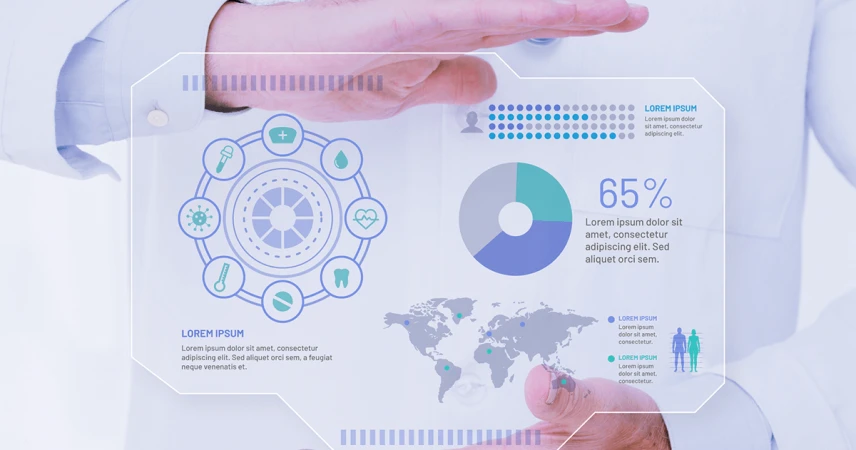
The Impact of Data Science in Healthcare: Revolutionizing the Industry
In recent years, the field of healthcare has witnessed a significant transformation, thanks to the application of data science.
With its ability to harness and analyse large volumes of data, data science in healthcare is revolutionising the industry by unlocking new insights, improving patient care, and enhancing operational efficiency.
This article explores the various ways in which data science in healthcare is making a positive impact and discusses the challenges and opportunities that lie ahead.

The revolution brought about by data science in healthcare
Data science is revolutionizing patient care, enabling healthcare providers to deliver personalized, evidence-based treatments that are tailored to individual patients’ unique needs.
By analyzing patient data and identifying patterns and trends, healthcare professionals can make more informed decisions, resulting in better outcomes and improved patient satisfaction. Moreover, data science in healthcare is streamlining operations by optimizing resource allocation, improving workflow efficiency, and enhancing decision-making processes. In addition to these significant advancements, data science has also played a crucial role in the early detection and prevention of diseases.
Through the analysis of large datasets, researchers and healthcare professionals have been able to identify risk factors and develop predictive models that can help identify individuals who are at a higher risk of developing certain diseases. This early detection allows for timely intervention and treatment, potentially saving lives and reducing healthcare costs.
Another area where data science in healthcare has made significant contributions is in research.
By analyzing large datasets from clinical trials, researchers can gain valuable insights into the effectiveness and safety of new treatments. This data-driven approach allows for more efficient and accurate evaluation of potential therapies, ultimately speeding up the process of bringing new drugs and treatments to market. Moreover, data science in healthcare has also been instrumental in improving patient outcomes through predictive analytics.
By analysing large datasets from clinical trials, researchers can gain valuable insights into the effectiveness and safety of new treatments.
This data-driven approach allows for more efficient and accurate evaluation of potential therapies, ultimately speeding up the process of bringing new drugs and treatments to market.
Moreover, data science in healthcare has also been instrumental in improving patient outcomes through predictive analytics.
By analysing historical patient data, healthcare providers can identify patterns and risk factors that may lead to adverse events or readmissions.
This information can then be used to develop predictive models that can help healthcare professionals intervene early and prevent such events from occurring, ultimately improving patient safety and reducing healthcare costs.
Additionally, data science in healthcare has empowered patients to take a more active role in their well-being. Through the use of wearable devices and mobile applications, individuals can collect and track their health data, such as heart rate, sleep patterns, and physical activity. This data can then be analyzed to provide personalized insights and recommendations for improving health and well-being.